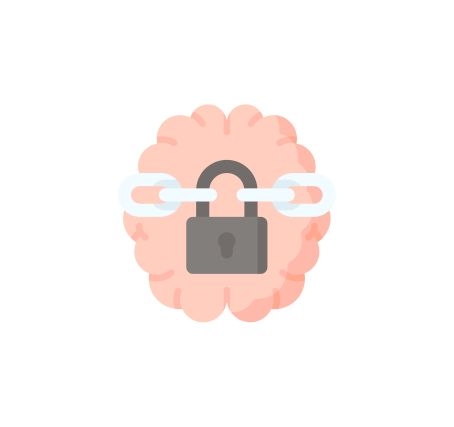OCD Therapy: Unsticking Your Mind
Obsessive-Compulsive Disorder (OCD) can create significant distress and interfere with daily life. If you’re struggling with intrusive thoughts and repetitive behaviors, our therapists are well prepared to help you get out of your mind.
OCD is a very frequently misunderstood mental health condition characterized by obsessions (unwanted, intrusive thoughts, images, or urges) and compulsions. These obsessions and compulsions can consume significant time and energy, impacting your relationships, work, and overall well-being.
The way OCD plays out can vary widely person to person but the intensity of the urges, fears, and anxiety remains the same.

Common OCD Themes
OCD presents in so many different ways. Some are consistent a have become their own “subtypes” of OCD. Other times, the details of someone’s OCD experiences might be unique but the overall pattern will be the same. Therapy for OCD generally works the same for all types, though.
The overall pattern in most OCD cases is the process of experiencing an intrusive thought you don’t like or don’t want, having anxiety associated with that thought, and then engaging a behavior designed to decrease the anxiety or make the thought go away. Sometime the behavior can occur only in your mind (thinking away thoughts or undoing thoughts for example).
Essentially the O (obsession/intrusive thought or image) leads to a C (compulsion or behavior). This might manifest in stereotypical ways such as hand-washing or checking the oven multiple times, but more often they seem to be expressed more subtle ways that sometimes go unnoticed.
How Therapy for OCD Works
At Summit, we utilize evidence-based approaches to OCD therapy, including:
- Exposure and Response Prevention (ERP): Gradually exposing you to feared situations or objects while preventing compulsions. This helps you learn to manage anxiety without resorting to repetitive behaviors.
- Cognitive Behavioral Therapy (CBT): Identifying and challenging negative thought patterns that contribute to obsessions and compulsions.
- Acceptance and Commitment Therapy (ACT): Learning to accept intrusive thoughts and focus on living a valued life.
- Mindfulness-Based Techniques: Increasing awareness of thoughts and urges without judgment, allowing for greater control.
Our experienced therapists are well trained in utilizing exposure and acceptance based strategies (the gold standards) to treat OCD. We’ll work with you to develop personalized strategies for managing anxiety and regaining control over your thoughts and behaviors.
Contact Us to Get Started
Give us a call at 423-207-3336 or use our confidential contact form to have us reach out to you!
Common OCD Themes
OCD presents in so many different ways. Some are consistent a have become their own “subtypes” of OCD. Other times, the details of someone’s OCD experiences might be unique but the overall pattern will be the same. Therapy for OCD generally works the same for all types, though. Some common themes are:
- Scrupulosity: fears about morality, sin, doing or having done “bad” things.
- Religious OCD: intrusive thoughts about religious imagery, sinfulness, or prayer.
- Past Event OCD: fears or excessive guilt about old actions or worry that you might have done something regretful.
- Relationship OCD: fears or worries about being in love with your partner or attracted to them.
- Somatic OCD: thoughts or hypervigilance about automatic body functions such as breathing, swallowing, your heartbeat, etc.
- Contamination OCD: fears and thoughts about germs, illness, or intentional or accidental poisoning.
- Sexuality OCD: fears and thoughts about unwanted attraction or incongruent attraction.
- Pedophilia OCD (POCD): fear that you might secretly be sexually attracted to children.
- Harm OCD: fear that you might secretly desire to hurt those around you or that you already have an might have forgotten.
OCD Therapy to Break the Loop
The hallmark of OCD is that all of these intrusive thoughts often follow zero logic whatsoever. They cause distress because they are the last thing the OCD sufferer would ever want to do. While everyone experiences scary images or thoughts, the non-ocd sufferer can brush these thoughts away as “silly” or “strange”. The OCD sufferer, however, experiences a huge amount of distress with these thoughts.
This distress then creates a loop of trying and trying to make the thoughts stop, go away, or to prove them wrong somehow; often with logic . These efforts tend to create more anxiety as the harder you try to not think of something the more you think of it. And then the loop has begun.
Effective counseling for OCD will have you gradually practice exposing yourself to fears and responding to them with new approaches that don’t rely on logic seeking or making the thoughts stop.
OCD is Treatable
When you learn how to shine a light on the tricks While it’s difficult to make thoughts stop, OCD is very responsive to therapy and many clients will say they still experience intrusive thoughts but no longer have such strong reactions to them.
When you learn to shine a light on the tricks OCD uses to maintain control, you unveil the man behind the curtain. We are excited to work with our OCD clients because we know they’re about to discover something new and we get watch it unfold. It’s like sharing your favorite movie series with someone who has never watched it.